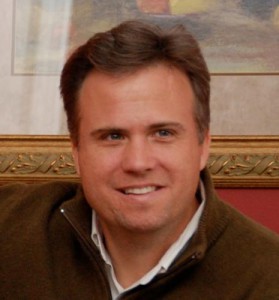
Why Even Failed Activism Succeeds
I enjoy reading histories of past activism, including memoirs by long-time activists, such as Lawrence Wittner's new book, Working for Peace and Justice.
Almost every such account includes belated discoveries of the extent to which a government was been spying on and infiltrating activist groups.
And almost every such account includes belated discoveries of the extent to which government officials were influenced by activist groups even while pretending to ignore popular pressure.
These revelations can be found in the memoirs of the government officials as well, such as in George W. Bush's recollection of how seriously the Republican Senate Majority Leader was taking public pressure against the war on Iraq in 2006.
Of course, activism that appears ineffectual at the time can succeed in a great many ways, including by influencing others, even young children, who go on to become effective activists — or by influencing firm opponents who begin to change their minds and eventually switch sides.
The beautiful thing about nonviolent activism is that, while risking no harm, it has the potential to do good in ways small and large that ripple out from it in directions we cannot track or measure.
Wittner participated in his first political demonstration in 1961. The USSR was withdrawing from a moratorium on nuclear testing. A protest at the White House urged President Kennedy not to follow suit:
“Picking up what I considered a very clever sign (‘Kennedy, Don't Mimic the Russians!'), I joined the others (supplemented by a second busload of students from a Quaker college in the Midwest) circling around a couple of trees outside the White House. Mike and I — as new and zealous recruits — circled all day without taking a lunch or a dinner break.
“For decades I looked back on this venture as a trifle ridiculous. After all, we and other small bands of protesters couldn't have had any impact on U.S. policy, could we? Then in the mid-1990s, while doing research at the Kennedy Library on the history of the world nuclear disarmament movement, I stumbled onto an oral history interview with Adrian Fisher, deputy director of the U.S. Arms Control and Disarmament Agency. He was explaining why Kennedy delayed resuming atmospheric nuclear tests until April 1962. Kennedy personally wanted to resume such tests, Fisher recalled, ‘but he also recognized that there were a lot of people that were going to be deeply offended by the United States resuming atmospheric testing. We had people picketing the White House, and there was a lot of excitement about it — just because the Russians do it, why do we have to do it?'”
Yes, Kennedy delayed a horrible action. He didn't, at that time, block it permanently. But if the picketers in 1961 had had the slightest notion that Kennedy was being influenced by them, their numbers would have multiplied 10-fold, as would the delay have correspondingly lengthened.
Yes, our government was more responsive to public opinion in the 1960s than now, but part of the reason is that more people were active then. And another reason is that government officials are doing a better job now of hiding any responsiveness to public sentiment, which helps convince the public it has no impact, which reduces activism further. We also focus far too much on the most difficult individuals to move, such as presidents.
In 1973-1974, Wittner visited GI coffee houses in Japan including in Yokusaka, where the Midway aircraft carrier was in port. The Japanese were protesting the ship's carrying of nuclear weapons, which was illegal in Japan, and which the U.S. military, of course, lied about. But U.S. soldiers with whom Wittner and other activists had talked, brought them onto the ship and showed them the nukes. The following summer, when Wittner read in a newspaper that,
“a substantial number of American GIs had refused to board the Midway for a mission to South Korea, then swept by popular protest against the U.S.-backed dictatorship, it occurred to me that I might have played some small role in inspiring their mutiny.”
Soldiers can still be reached much more easily than presidents, more easily in many cases in fact than the average citizen. War lies are harder to sell to the people who have been fighting the wars.
In the late 1990s, Wittner was researching the anti-nuclear movement of decades past. He interviewed Robert “Bud” McFarlane, President Ronald Reagan's former national security advisor:
“Other administration officials had claimed that they had barely noticed the nuclear freeze movement. But when I asked McFarlane about it, he lit up and began outlining a massive administration campaign to counter and discredit the freeze — one that he had directed. . . . A month later, I interviewed Edwin Meese, a top White House staffer and U.S. attorney general during the Reagan administration. When I asked him about the administration's response to the freeze campaign, he followed the usual line by saying that there was little official notice taken of it. In response, I recounted what McFarlane had revealed. A sheepish grin now spread across this former government official's face, and I knew that I had caught him. ‘If Bud says that,' he remarked tactfully, ‘it must be true.'”
When someone tells you to stop imagining that you're having an impact, ask them to please redirect their energy into getting 10 friends to join you in doing what needs to be done. If it has no impact, you'll have gone down trying. If it has an impact, nobody will tell you for many years.



